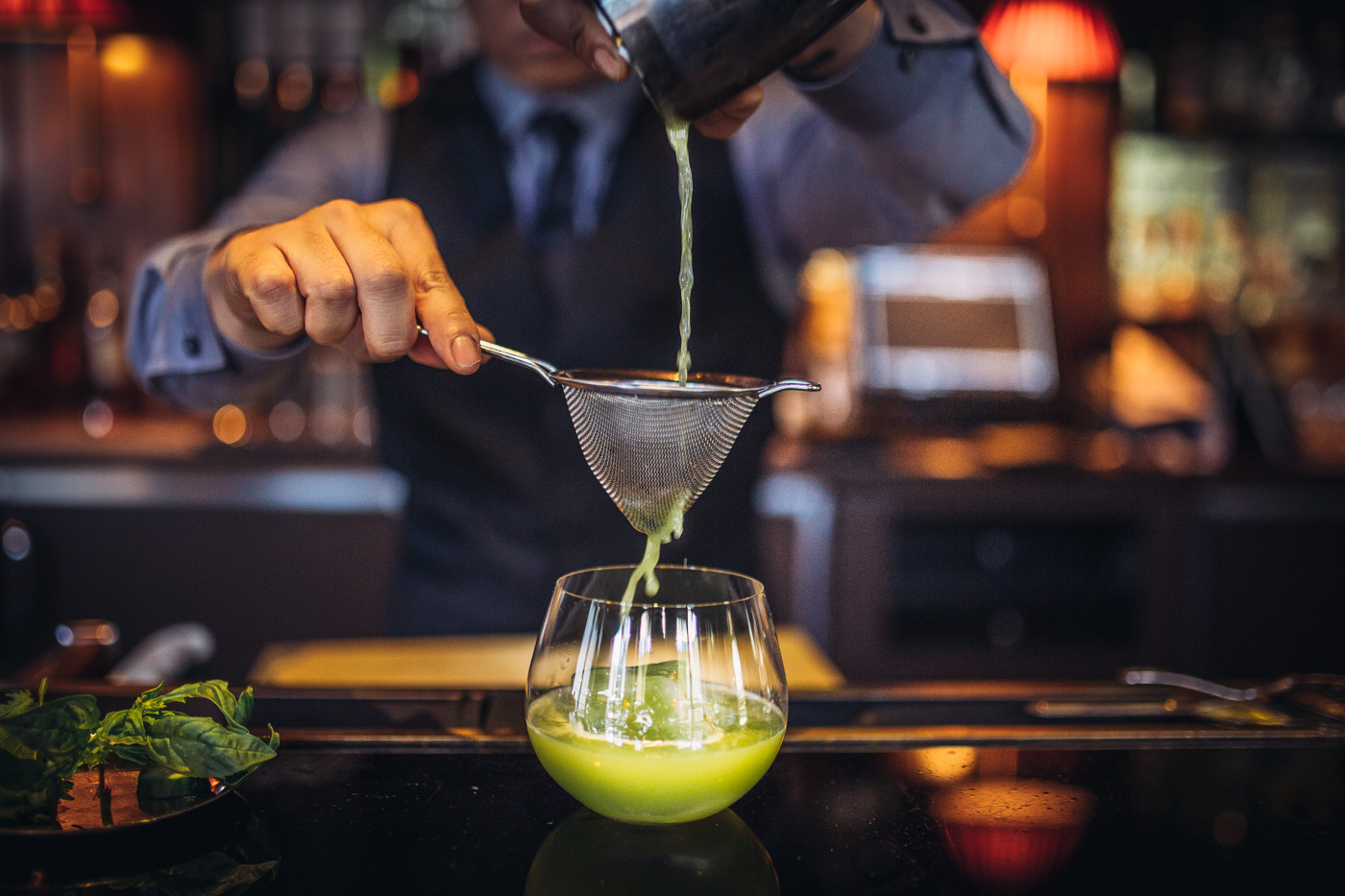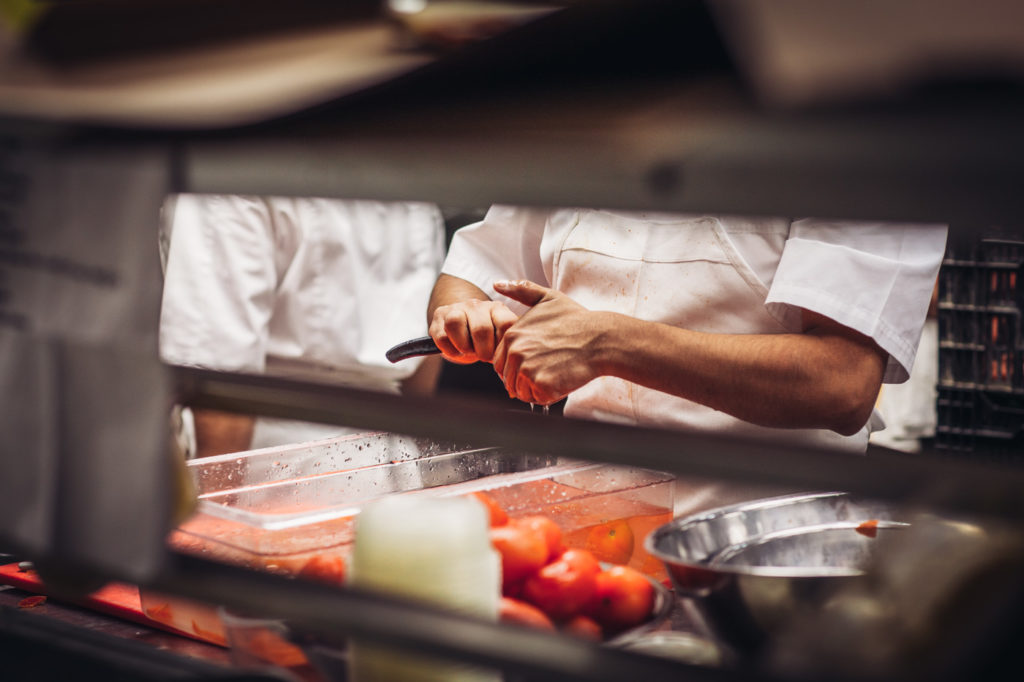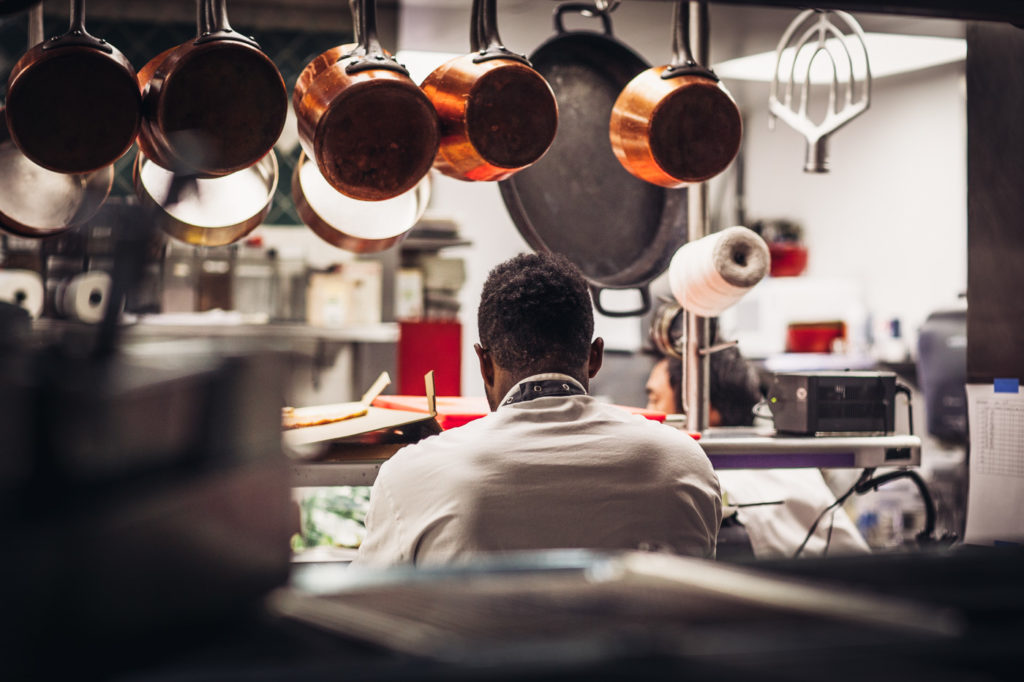Op-ed
The other day, I got a little angry with a friend. Okay, a lot angry. During the course of our conversation about dining out (a common subject in my life), she made a generalized comment about the restaurant business and the people in it—that alcohol abuse, drug use, and what she perceived to be a culture of irresponsibility and debauchery rampant in the service and hospitality industry made her resentful of the “requirement” to tip in restaurants. She didn’t want her money supporting that lifestyle.
I resisted the urge to do some table-flipping and go full Marco Pierre White on her. I had to stifle my defensiveness, and remind myself that she’d never felt the sting of seeing a tip line that could turn your stomach after a table you’d spent hours with stiffed you. That she’d never gone home at the end of a 12-hour double shift with not much to show for it but a few fresh blisters and a pounding headache. But what was more apparent, and the more substantial source of my ire, was she clearly also never had the chance to spend time in the trenches with the kind of people I’d come to know and love over my nearly two decades in the business. The remark felt sorely off base.
As a person who has moved 16 times in 10 years, restaurants, cafés and bars have become my second homes. As a person who has worked in the business for 18 years, in countless locations and just about every capacity, hospitality industry workers have been my adoptive families. I was—and am—fiercely protective of those friends.

If we had the time, I’d have told her my stories. Stories about the people who took me in when I was new in town. Stories about fellow servers who shared their hard-earned tips with me when I was facing financial troubles. Chefs who might have screamed at me in the heat of service over a botched ticket, but came to sit with me afterwards offering an apology and a beer while I counted out my drawer. Busboys who barely spoke English who helped me change a tire in the middle of the night, or general managers who made sure I was protected when the drunk guy at table 12 was trying to get me to sit on his lap, or a bartender who gave me half his own tips when my last table had run out on the check. They’ve invited me home for family dinners and cooked for me and driven me to doctors appointments and walked me to my car after last call and made connections for me in towns to which I would be migrating. They have been, in my experience, the salt of the fucking earth.
Is everyone in the business so noble? Of course not. No industry is exempt from its share of assholes. But my general experience has been one of such positivity—my very best friends are restaurant biz lifers. I have rarely found such caring individuals outside the hospitality setting; many of them take their jobs more seriously than most attorneys and doctors I know—and they’re more passionate, to boot.
But I’ve been so close to the good people in our little food world for so long that I lost track of the public’s perception, and I began reflecting on the type of people drawn to the service industry—who they really are, how they end up here and why. Sure, in busier restaurants and bars, particularly on the tipping side, an argument can be made that it’s for the money. But trust me, there are far less punishing ways to make a living than serving tables or tending bar. It also takes a certain kind of risk-taking personality to rely on the notoriously unreliable industry. And when it comes to back-of-house, well, those positions have never exactly been known for being well-compensated (a subject of much contemporary debate).
So if not for money, what is the attraction? The answer, for so many of us, comes down to something far more elemental. Those folks drawn to the food world, well, we’re a sensitive bunch—a fact evidenced by our inherent desire to uphold the core tenet of these jobs: to provide hospitality. That is, to take care of people. It takes a special kind of crazy to work in a restaurant, and a special personality who wants to provide that care.

It made me think of the comedy world. A stand-up comic once explained to me that comedians are often extremely sensitive, which is why—combined with a transient road-based lifestyle—addiction and depression can be so common among them. It seems counterintuitive, but then she continued that to make people laugh—to craft well-written, effective jokes—is to intuit so deeply and carefully from the shared human experience. Comics are intensely empathetic people. They feel things acutely. It’s how they distill those feelings into those observations that resonate with their crowds.
The service industry is not far off. I can speak for myself that it has always appealed to my sensitive nature. I’ve also often been lonely, a transplant seeking a surrogate family. I’ve found that comfort not only on the plate or in a specific dish, but also in the folks who create and serve them. Spirits I can count on to be kindred in any city. And beyond making friends behind the line, I’ve found pride in being able to connect with a table or patron—learning their preference for sparkling over tap, recommending the right dish for the table, knowing to set their stirred Manhattan on the bar before they could take a seat at it, sensing they had a long, hard day and helping to make it better. I thrived on making those connections; I took seriously the task of providing an experience, a sense of comfort, a setting for celebration, a salve.
And then there’s the rush of service—adrenaline unparalleled outside of, say, an emergency room or extreme sporting event (neither of which I would be qualified for); it can be addicting. And the exhilaration of service bonds you to other people. Almost overnight, you become attached to these other human beings. Within a week of meeting someone, you can have more profound interactions, more heated arguments, more heartfelt apologies, and more support than you might even with your own siblings. It’s instant family—just add heat.

I got hooked on it with my first food job at age 15. Later, even after pursuing a college education in communications and taking a job in the field of my degree, it didn’t take long for me to get restless and start moonlighting at a local restaurant. Eventually, I abandoned the marketing profession altogether—nothing could compare (the contrived holy shit deadlines of advertising hardly felt as high stakes as a hot dish in the pass needing to find its way to a hungry diner… or the cranky chef waiting to skewer the ticket).
But all that intensity coupled with long, physically rigorous hours can take a toll, not just on the body but also the mind. Perhaps part of the perfect storm is there is also the lack of proper health care for hospitality professionals. While larger groups are making an effort to enhance benefit packages, it’s not always something available to those smaller businesses and startups. Combined with hours that alienate most workers from the rest of the world (making most “normal” relationships nearly impossible to maintain), sucker punches from less than gracious guests, and yes, access to a lot of after-hours booze, it can create an environment in which a certain personality might find oneself susceptible to less savory pastimes.
There have no doubt been periods in history when some hospitality workers were on the fringes of society—nocturnal party animals who lived and aged in sweltering kitchens and dark bars beside bottles of alcohol, schilling pleasure and partaking themselves as soon as the patrons paid their tabs. But just as the caricature of the red-faced, irate French chef has been hit with a tranquilizer dart, and those in the kitchen have determined that nurturing their staff—not terrorizing them—actually has more favorable results, the industry is evolving across the board, thanks in part to an increased respect in general for the world of food.


Love it or hate it, the idea of the celebrity chef and the allure of foodie culture has opened up the vocation to a different caliber of candidates. It has put pressure on chefs and restaurant staff to be sharper, more professional, and more polished. They’re under the microscope of the media, subject to internet reviews that have the consequence of keeping them in line. I’ve spoken to chefs that downright forbid their brigade from indulging in anything that would hinder their performance. They encourage holistic lifestyles, fitness and healthy eating, knowing how physically demanding the intensity of service can be. Many restaurants are now offering incentives and programs focused around employee wellness, they’re organizing running groups or cycling retreats rather than happy hours.
To cook and serve is not what it used to be; it’s not a fallback career. It’s not something to kill time during graduate courses. It’s not just a job; it’s a calling. There’s a code, and it’s one most folks I know honor long after their last table has been cleared. They think about what they could have done better or differently, how a restaurant or a line could improve the guest experience; they take seriously the responsibility to take care of you every day.
As the profession (and its form of accepted payments) evolves, so too should our perception of the people in the industry. Doctors are revered for their ability to take care of us. If food, too, is proverbial medicine, your chefs and servers are just as important in some ways—they are there to nourish and provide care. We respect those professionals performing functions for which they are uniquely qualified; we don’t question the worth of their services, because we assume they do something we can’t. I would argue hospitality folks have one very special qualification of their own—a nurturing spirit.
And whether the tip is a suggested 20 percent, or it’s been conveniently rolled into the price of your perfectly roasted heirloom carrots, these people are not a dime a dozen. You can argue your dollars are supporting a certain kind of lifestyle, but at the end of the day you’re supporting a certain type of person—one who has made a career out of taking care of other people. These days, I think we should all support that kind of spirit.



Our comments section is for members only.
Join today to gain exclusive access.